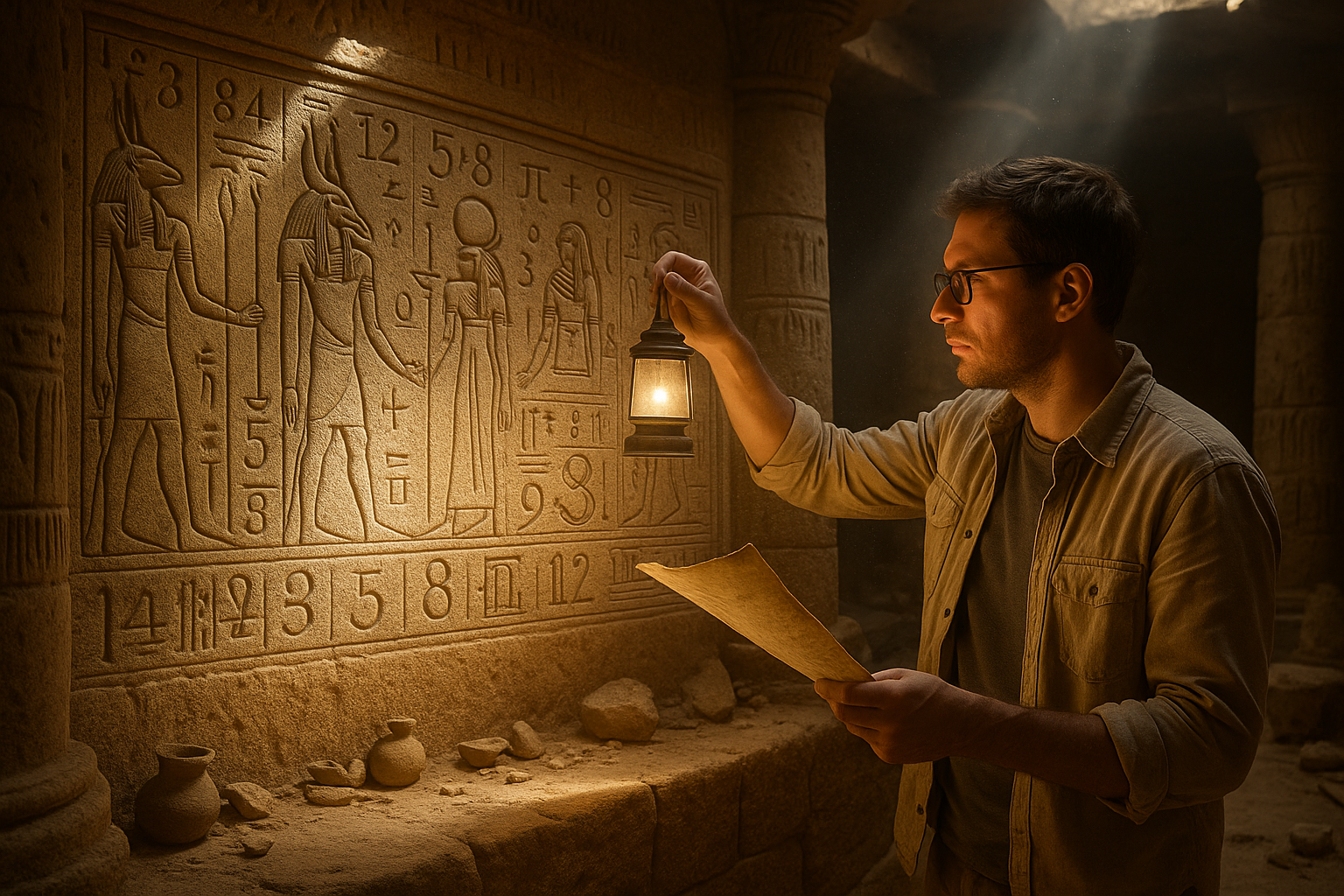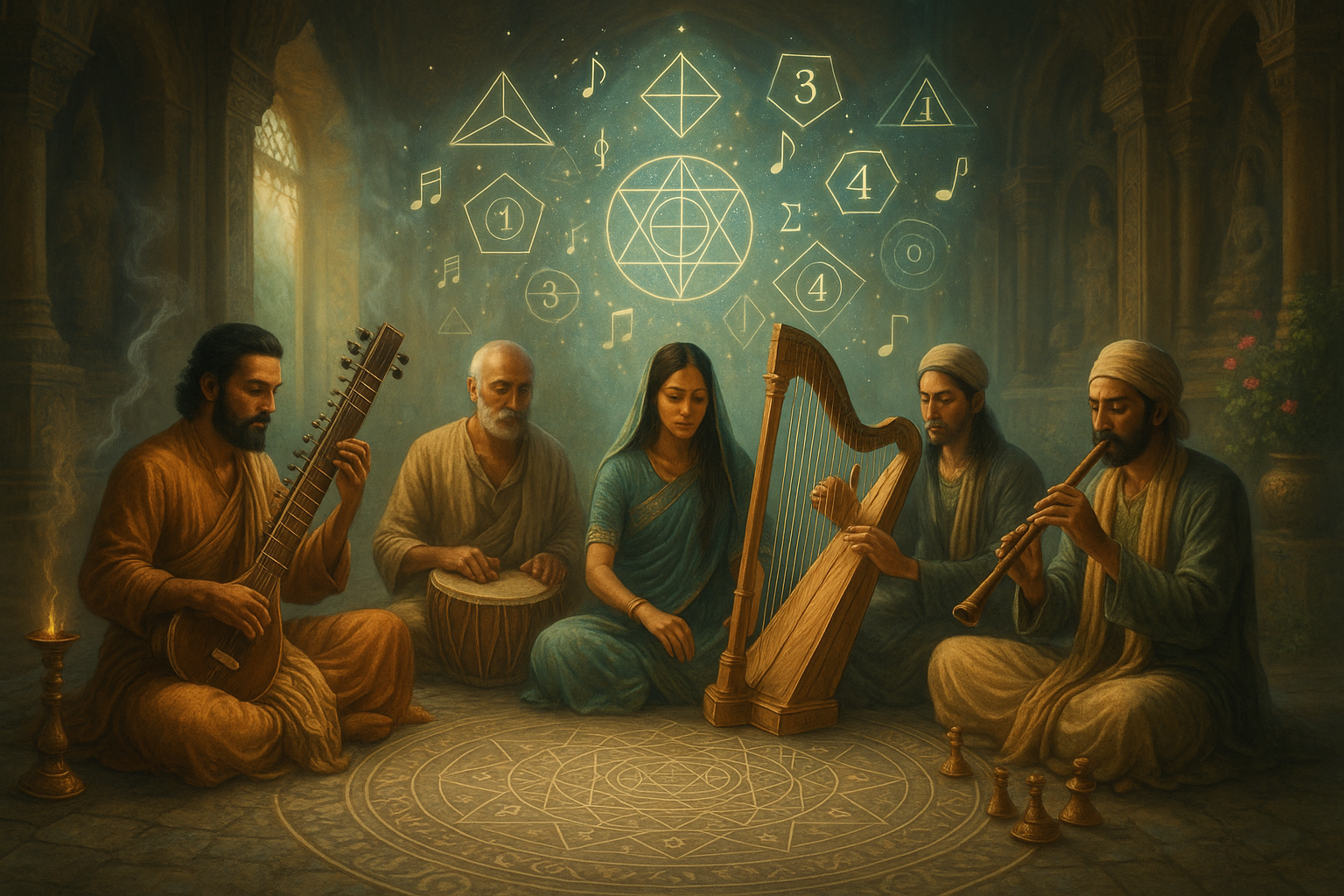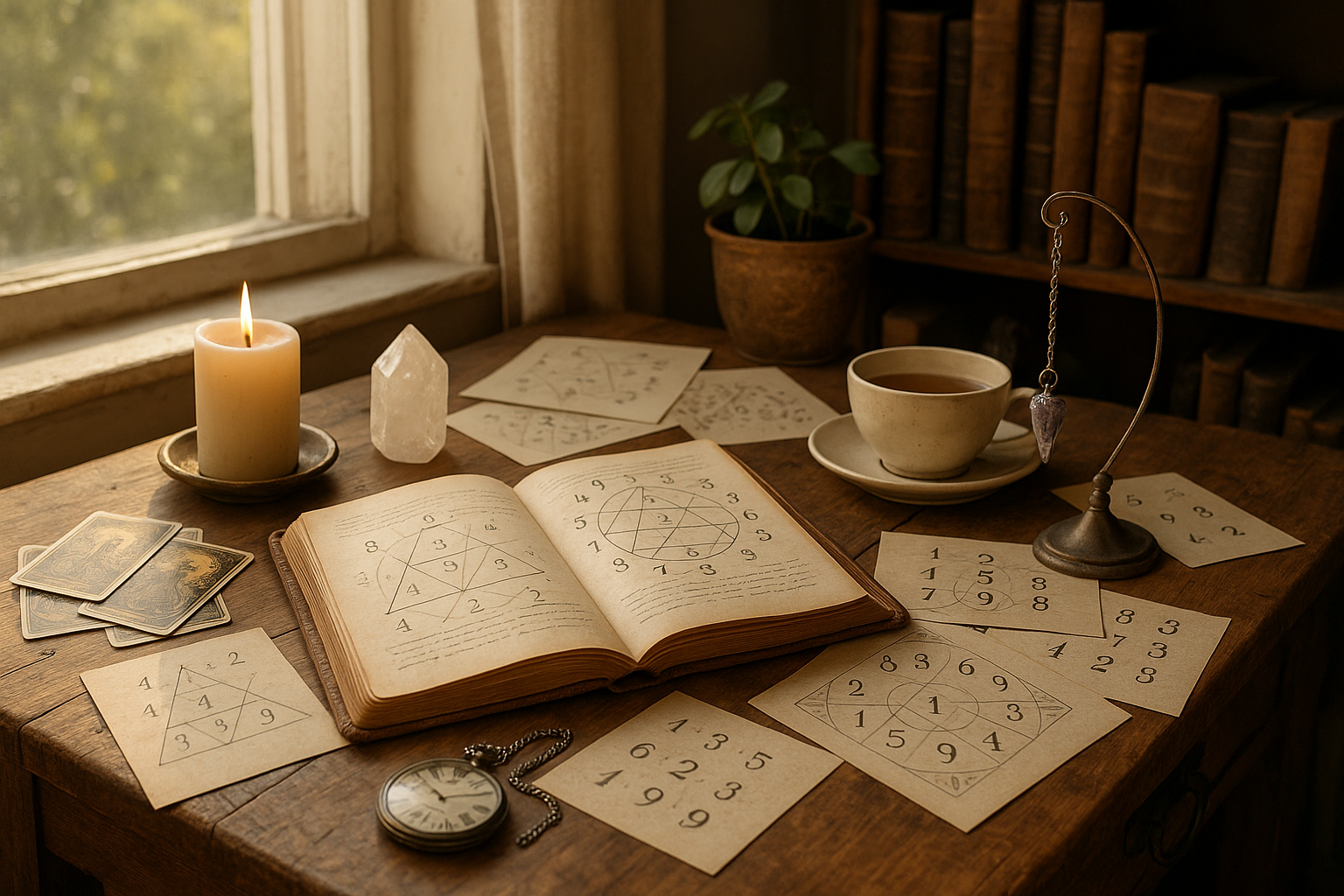From the enigmatic pyramids that pierce the skies of Giza to the timeless allure of the Nile, ancient Egypt has long captured the imagination of historians, archaeologists, and curious minds alike. Yet, amidst the rich tapestry of pharaohs, hieroglyphs, and sphinxes, there lies a more subtle and esoteric dimension of Egyptian culture that often goes unnoticed: the mystical world of numerology. 🌟
Numerology, the ancient study of numbers and their cosmic significance, is not merely a modern fascination. It has roots deeply embedded in the rituals and myths of ancient civilizations, particularly that of the Egyptians. As we embark on this journey through time, we’ll unlock the secrets held within numerical symbolism and its profound impact on Egyptian mythology. This exploration will reveal how numbers shaped religious beliefs, influenced monumental architecture, and guided the spiritual lives of the ancients.
Why did the Egyptians place such importance on numbers? What did these numbers represent, and how did they integrate into the broader context of Egyptian mythology? These are the questions we aim to unravel as we delve into this fascinating intersection of mathematics and mysticism.
Numbers held sacred meanings for the Egyptians, often symbolizing divine principles or deities themselves. The number “7,” for instance, was revered as the number of perfection and completeness. It frequently appeared in myths and religious texts, symbolizing cycles of life and spiritual enlightenment. Similarly, the number “3” represented the concept of the trinity, a powerful symbol of harmony and balance, manifesting in various aspects of the culture, from the pyramids’ design to the triad of Osiris, Isis, and Horus.
As we peel back the layers of history, we will explore the significance of these key numbers and their appearances in Egyptian mythology. We’ll uncover how these numerological beliefs were not only philosophical but also practical, influencing everything from temple architecture to the organization of the calendar.
One cannot discuss Egyptian numerology without mentioning the iconic Pythagorean influence. While Pythagoras, the famed Greek philosopher and mathematician, is often credited with formalizing the study of numbers, many of his ideas were inspired by earlier Egyptian concepts. The Egyptians’ understanding of numbers went beyond mere arithmetic; they believed numbers were the language of the universe, a means to communicate with the divine.
In this article, we’ll also journey into the heart of Egyptian temples and tombs, where inscriptions and carvings reveal a deeper, numeric layer of religious rituals. Numbers were meticulously woven into the fabric of worship and the afterlife, guiding both the living and the dead in their spiritual journeys. 🏺
Moreover, the mystical allure of numbers extends to the astrological and astronomical realms. The alignment of stars and celestial bodies with sacred structures underscores the Egyptians’ quest to harness cosmic power. We’ll examine how the Egyptians’ advanced knowledge of astronomy and numerology allowed them to create architectural marvels that still captivate the world today.
This exploration is not just about the past. Understanding Egyptian numerology offers us a window into a worldview where the mundane and the divine coexist, where every number tells a story, and every story holds a lesson. By examining these ancient practices, we can glean insights into how we perceive numbers today, perhaps even inspiring a renewed appreciation for the hidden meanings that numbers can convey.
Join us as we unlock the secrets of numerology in Egyptian mythology. Prepare to be enthralled by the symphony of numbers that dance across millennia, whispering the ancient wisdom that continues to resonate in our modern world. As we journey through time, the magic of Egyptian numerology awaits, ready to illuminate the mysteries of the universe, one number at a time. 🔮

Conclusion
## Conclusion
Egyptian numerology offers us a fascinating window into how one of history’s most advanced civilizations understood the universe and their place within it. From the sacred significance of three representing creation to the completeness embodied in the number seven, these ancient numerical systems weren’t just mathematical tools—they were spiritual blueprints that guided everything from temple architecture to daily rituals. The Egyptians recognized that numbers held divine power, and they wove this understanding into the very fabric of their society, creating a legacy that continues to influence modern numerological practices today.
What makes Egyptian numerology particularly compelling is its practical application in everyday life. Unlike abstract mathematical concepts, these numerical principles were deeply embedded in how people made decisions, interpreted dreams, and sought guidance from the gods. The priests who mastered these systems held tremendous influence, serving as intermediaries between the mortal and divine realms. Their knowledge of numerical patterns helped them predict Nile floods, plan agricultural cycles, and determine auspicious dates for important events. This blend of mysticism and practicality demonstrates the sophisticated worldview of ancient Egyptian culture.
As you explore Egyptian numerology further, you’ll discover that many of its core principles resonate with contemporary spiritual practices and modern numerological systems. The emphasis on cycles, balance, and cosmic order remains relevant for those seeking deeper meaning in their lives. Whether you’re drawn to Egyptian numerology for its historical significance, spiritual insights, or simply out of curiosity about ancient wisdom, this timeless system invites you to see numbers not merely as quantities but as sacred symbols carrying profound truths about existence itself. The ancients left us more than pyramids and hieroglyphs—they left us a numerical language that still speaks to the soul.
Toni Santos is a symbolic researcher and esoteric scholar specializing in the study of animal symbolism in spiritual traditions, hidden alphabets and ciphers, numerological systems of antiquity, and the geometric patterns that connect the cosmos to sacred art. Through an interdisciplinary and mystical-focused lens, Toni investigates how humanity has encoded divine knowledge, cosmic order, and spiritual mystery into symbols — across cultures, myths, and secret teachings. His work is grounded in a fascination with symbols not only as visual forms, but as carriers of hidden meaning. From ancient numerological wisdom to totemic creatures and sacred geometric codes, Toni uncovers the visual and symbolic tools through which cultures preserved their relationship with the spiritual unknown. With a background in esoteric semiotics and sacred tradition history, Toni blends visual analysis with archival research to reveal how symbols were used to shape identity, transmit memory, and encode sacred knowledge. As the creative mind behind imansy.com, Toni curates illustrated symbol studies, esoteric pattern analyses, and spiritual interpretations that revive the deep cultural ties between animals, hidden scripts, and forgotten wisdom. His work is a tribute to: The sacred meaning of Animal Symbolism in Spiritual Lore The encrypted systems of Hidden Languages and Secret Alphabets The ancient calculations of Numerology in Ancient Traditions The universal design language of Sacred Geometry and Cosmic Patterns Whether you're a spiritual seeker, symbolic researcher, or curious gatherer of esoteric wisdom, Toni invites you to explore the hidden layers of sacred knowledge — one symbol, one cipher, one pattern at a time.



